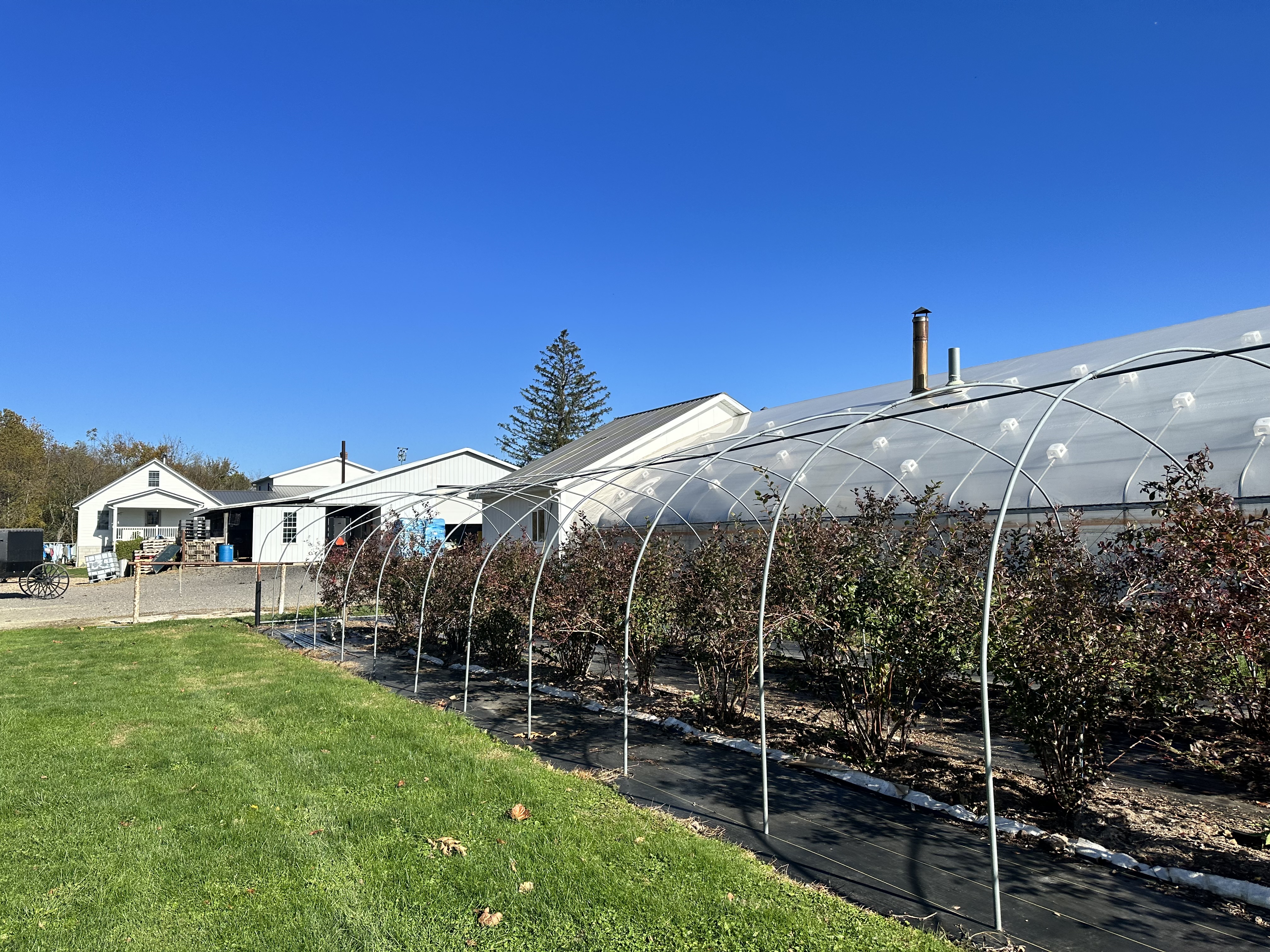From Local Ground

When considering the rurality of Kenyon’s campus it can comes as a surprise to some that, thanks to the multitude of farms that surround campus, it is also settled in an oasis of food. Driving toward campus from pretty much any nearby city, one will see a trend — houses, stores, streets and people giving way to fields of vegetables and corn and paddocks of livestock. What might be shocking though, is that it was only in the past ten years that Kenyon decided to purposefully utilize this practically backyard resource. The person currently in charge of acquiring Kenyon’s food is Dave Kraynak, the director of local purchasing with AVI Food Systems (the company in charge of everything food-related at Kenyon). Kraynak has been in the position for six years.
Kenyon switched to AVI ten years ago, noted Kraynak. He said, “the prior vendor just wouldn’t attempt to source food locally due to the liability of working with smaller vendors. We would and that’s why the College chose us."
When asked, he estimated that about 40 percent of Kenyon’s food is sourced locally, with the majority of that coming in the form of protein — local beef, pork and dairy. But it's not just big-ticket items that Kraynak searches Knox and surrounding counties for; goods like the humble lettuce head are also sourced, bought and prepared in massive quantities — and at a similarly eye watering price.
Over the course of several weeks during the highly productive Ohio summer growing season, the College often spends $50,000-$60,000 on produce, much of which comes from family-run farms like that owned and operated by Jonathan Byler of Creekside Farm in Danville. His farm is a mere 10 miles as the crow flies from the College.
Byler was first connected to the College when Kraynak’s predecessor, John Marsh, found the operation during one of his drives around the county. At the time, Byler notes, he sold only retail, but upon hearing the massive quantities Kenyon wanted, became convinced to go into wholesale, which he has done ever since.
Today Creekside Farm produces a wide variety of vegetables seen in the Peirce salad line: radish, spinach, swiss chard, parsley, brussel sprouts, broccoli, lettuces of all types, peppers, tomatoes and cucumbers.
When asked about “why local,” both Kraynak and Byler were adamant that there [is] a real difference. “It's fresher, way fresher,” Byler noted. “I’m sure they can grow all this stuff as good anywhere as here, but by the time it gets to you it's not as fresh as if you got it from us.” What’s more, the food he grows is largely organic, “unlike bigger growers, we don’t load with spray.”
While AVI has made tremendous strides in increasing the percentage and quality of food that is sources locally, there are limitations. “Last time I calculated we are at 40% local origin, but going further is a challenge,” Kraynak stated. Part of that has to do with Ohio’s climate, which means that there is a long winter where it is virtually impossible to continue growing at such a scale.
To help keep local products a part of the Kenyon food scene, Kraynak is always on the prowl for the next local foodstuff. His next steps are to look for baked goods and honey. As for Byler, he has Brussel sprouts to pick, pack and send in the next few hours to Kenyon — a few miles down the road.